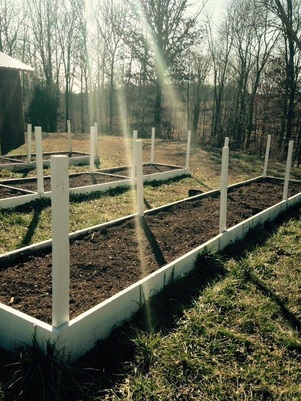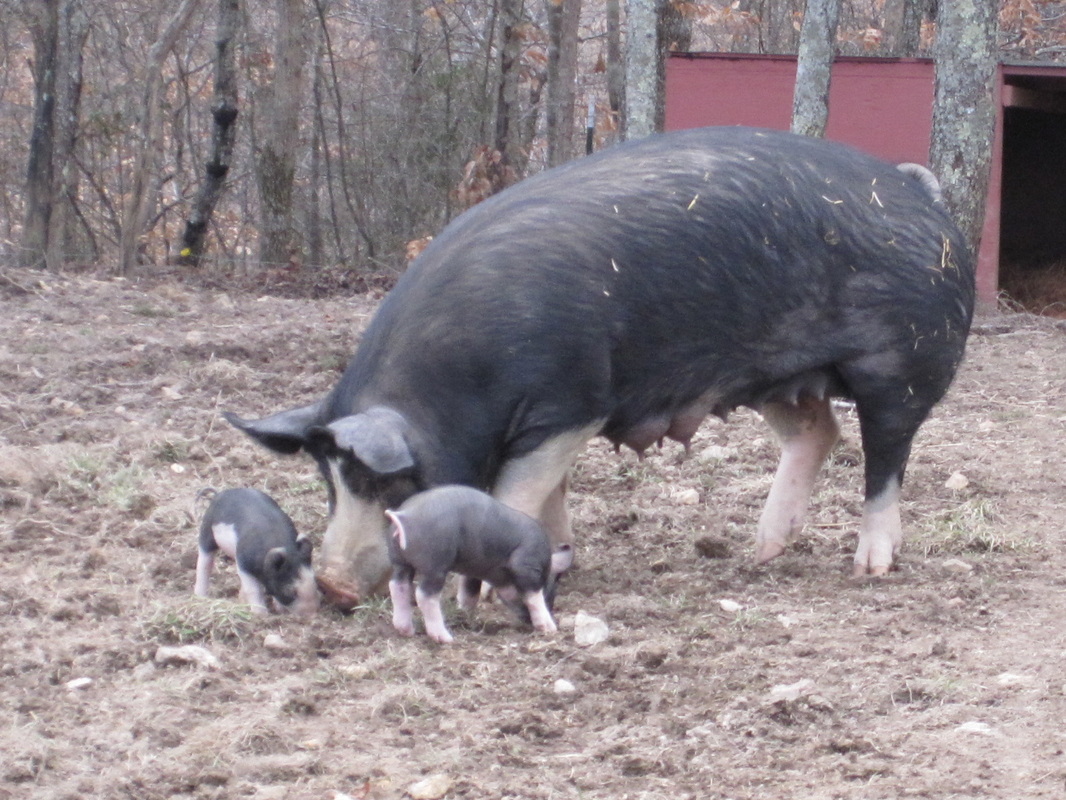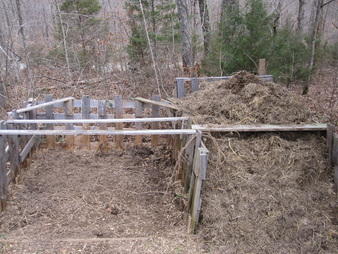Yesterday the weather hit the mid-60s and I got the chance to work outside all day and it was glorious! Since being pregnant, then being on bed rest for five weeks and then trying to recover from a C-section, I have been benched for way too long. I got a taste of my old life again and made some great progress getting ready for spring planting. The only good thing about being on the sidelines for so long is that I have been pouring over a large stack of seed catalogs, ordering seeds and planning out my gardens.
I ordered way too many seeds for the year, even with nine raised bed gardens, an herb garden, and a quarter acre garden! Our goal for the year is to reduce feed costs for the chickens and pigs by growing a large amount of produce for them May through October. It's so hard not to order excessively with all the different varieties available, especially some of the interesting heirlooms that you would never see in a big box store.
I also found an idea in a magazine about making potato cages that I am going to try out this year. I cut some leftover fencing in half, then tied the ends together with bailing twine to make a ring and filled the bottom 4-5 inches with dirt and compost. The idea is that once the plants begins to grow, you add more and more dirt and the plant makes more potatoes as is grows up. To harvest, you just lift off the cage and unbury your potatoes. I’m hopeful this will increase the potato yields for the year and save garden bed space. Pigs and chickens both love cooked potatoes mixed in with their feed. They must be cooked because raw potatoes are toxic.
I got my raspberry plants weeded, added some compost and put used straw bedding from the pigs on them as mulch. I mulched the fruit and nut trees and blueberry bushes with dried pine needles from our pine trees, and added some compost to them as well. The box gardens are weeded and ready to plant also. Now I just have to be patient and wait for spring to finally arrive.
I ordered way too many seeds for the year, even with nine raised bed gardens, an herb garden, and a quarter acre garden! Our goal for the year is to reduce feed costs for the chickens and pigs by growing a large amount of produce for them May through October. It's so hard not to order excessively with all the different varieties available, especially some of the interesting heirlooms that you would never see in a big box store.
I also found an idea in a magazine about making potato cages that I am going to try out this year. I cut some leftover fencing in half, then tied the ends together with bailing twine to make a ring and filled the bottom 4-5 inches with dirt and compost. The idea is that once the plants begins to grow, you add more and more dirt and the plant makes more potatoes as is grows up. To harvest, you just lift off the cage and unbury your potatoes. I’m hopeful this will increase the potato yields for the year and save garden bed space. Pigs and chickens both love cooked potatoes mixed in with their feed. They must be cooked because raw potatoes are toxic.
I got my raspberry plants weeded, added some compost and put used straw bedding from the pigs on them as mulch. I mulched the fruit and nut trees and blueberry bushes with dried pine needles from our pine trees, and added some compost to them as well. The box gardens are weeded and ready to plant also. Now I just have to be patient and wait for spring to finally arrive.



 RSS Feed
RSS Feed
